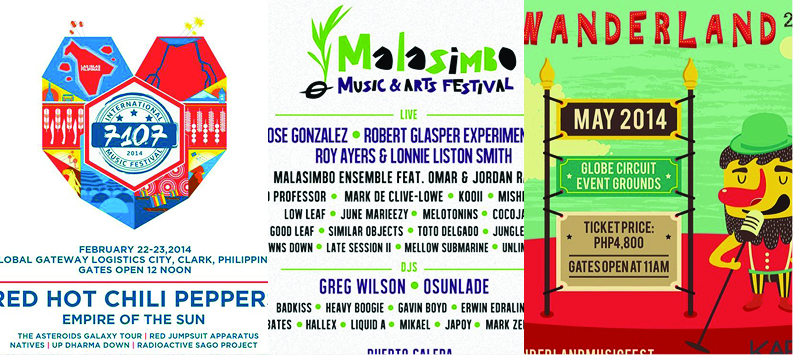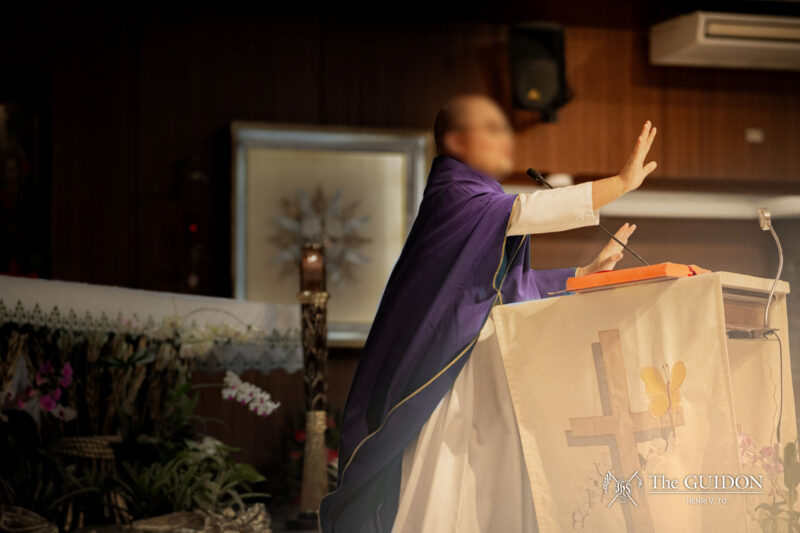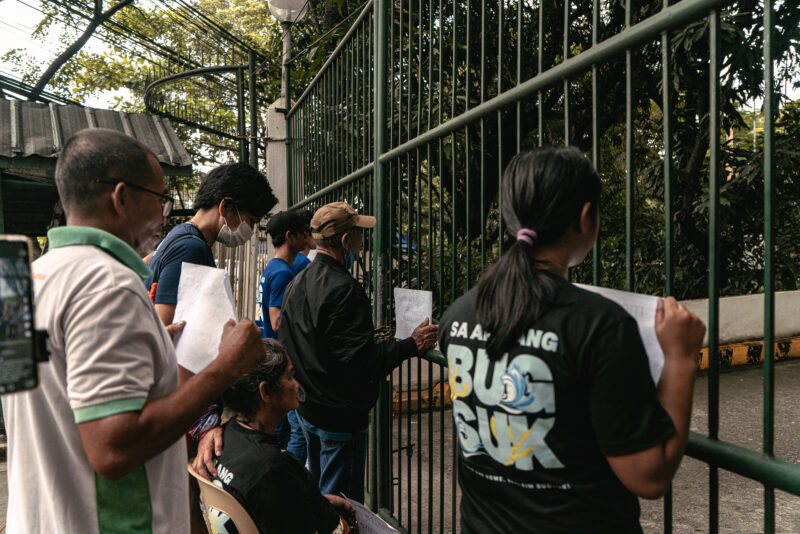For many Filipino music lovers, attending an event like the renowned Coachella Valley Music and Arts Festival has always been a distant dream. But very few people actually manage to make the trip, the rest watching longingly from their laptop screens instead.
However, times have changed. Local event organizers have begun to realize the feasibility of music festivals held right here. In the next few months alone, an eclectic mix of genres and artists await us at festivals like the 7107 International Music Festival in Clark, Malasimbo Music and Arts Festival in Puerto Galera and Summer Siren Festival in Zambales.
Although music festivals still have to face several hurdles before becoming mainstays in the local music scene, they have grown increasingly popular of late. From forming stronger bonds between musicians and their fans to reintroducing music as a communal experience, the music festival has become quite the showstopper.
Making an entrance
With the rise of the African-American Civil Rights Movement and the protests against the Vietnam War, the 1960s were a tumultuous time in American history. However, this was also the era of peace, love and rock and roll—ideals that were championed by pioneering music festivals like the Woodstock Music & Art Fair.
Today, music festivals seem to have lost their political sensibility. “Over the past 20 years, they have undergone a startling transformation,” writes Fiona Sturges in The Independent. Written in 2010, her piece examined the “new-found poshness ” of modern-day British music festivals.
Music festivals have morphed into multi-million-dollar extravaganzas, attracting an almost cult-like following. The Glastonbury Festival in England has had an annual attendance of 175,000 people since the 1970s. According to Rolling Stone, in 2012, California’s Coachella broke its annual attendance record in its first weekend with over 80,000 people attending each day of the three-day festival.
The Philippines also has its fair share of long-running music festivals. Since 2001, rock and metal festival Pulp Summer Slam has been headlined by the likes of the Eraserheads and Parokya ni Edgar. Meanwhile, Fête de la Musique has become one of the most well attended music events in the Metro since 1994. First taking place in Paris in 1982, the event has grown into an international music festival celebrated on June 21 in over 460 cities worldwide.
Another growing festival is Malasimbo. Now on its fourth year, the annual festival has grown exponentially in terms of both line-ups and attendees, reportedly gathering over 6,000 people last year. Apart from the local and international acts, it also showcases the work of various artists and acquaints festivalgoers with the Mangyan Tribe, Mindoro’s indigenous people.
Setting the stage
For musicians like Leah Halili, a University of the Philippines-Diliman student, music festivals are all about witnessing the musical prowess of a multitude of talented acts.
“They give people the unique experience of hearing a variety of their favorite bands all in one location,” she adds. Halili is a member of the band Kian Ransom, which was recently crowned Wanderband Grand Champion and will be performing at indie music festival Wanderland 2014.
For talented artists who are building their careers, music festivals serve as a solid platform for their music to be heard. At the same time, festivalgoers not only have the chance to see their favorites perform live but are also exposed to new sounds that ultimately lead to a rediscovery of music as something shared.
Nowadays, listening to music is often a solitary experience with earphones turned up to the highest volume, usually with the intention of drowning out the rest of the world. Music festivals bring back the tradition of music as a communal experience. As Halili puts it, the entire production creates “a unique atmosphere where strangers are united by a common interest and love.”
Ultimately, music festivals are about the overall experience. In a 2013 BBC article, Rob da Bank, a Glastonbury regular and founder of the successful British festival Bestival, says that people go to experience an alternative reality. From embracing the spirit of freedom to escaping from the daily grind, he believes that music festivals are about “becoming part of a larger family. Letting your hair down, doing whatever you want, feeling free.”
Rising to the challenge
Organizing a music festival, however, is far from a walk in the park.
“This is the first year of 7107 and with it comes the prerequisite birth pains,” says Gaby Herbosa, an interdisciplinary studies senior and a member of the 7107 Street Team, which handles the social media and guerilla marketing of the festival.
Following the release of the festival’s final lineup, many criticized 7107 for overhyping its international acts. An early press release listed acts such as Kanye West, Drake, Ellie Goulding and Arcade Fire, while the final international lineup consists of the Red Hot Chili Peppers, Kendrick Lamar and Kaskade.
With a lineup composed mainly of local acts, it has essentially failed to deliver on its promise of being an international music festival.
It appears that this backlash has negatively affected sales and, with the date of the festival fast approaching, pushed its organizers to give away tickets left and right. However, Herbosa insists that their ticket sales indicate otherwise, adding that the tickets being given away are meant to generate awareness and interest in the festival.
According to The Philippine Star, The Philippine Daily Inquirer and Rappler, rumors have even surfaced linking the festival to the family of alleged pork barrel scammer Janet Lim-Napoles. These rumors assert that that Napoles’ son of is one of the event’s producers, a claim that has been vehemently denied by organizers.
Maintaining a music festival’s good reputation and ensuring that it has a noteworthy lineup are just some of the factors that its organizers consider. Becoming commercially successful also contributes to a music festival’s longevity; the profits generated by ticket sales, concessionaires and sponsorships need to make up for the high costs of talent and production.
More than the music
Within the Ateneo, Ateneo Exchange Council’s (ASEC) Jimi Solomon believes that music festivals possess the power to shape the music culture on campus by encouraging Ateneans to recognize authentic talent.
This was what prompted ASEC to jump on the bandwagon with their own fundraising music festival, Soundtrip. “[Music festivals] offer a variety of genres to fans, which is what we wanted for Soundtrip,” says Solomon, a junior management major and Soundtrip’s project manager.
Held last January 30, 2014 at Bellarmine field, the 15-act lineup boasted a diverse pool of Atenean talent, each with their own distinct sound. From bands like Never The Strangers and Mind Money Circuit to solo acts like Gab Cabangon, the event fulfilled its promise of showcasing different kinds of musical talent.
“We chose them because we think they offered something different to the crowd with their unique personalities,” she says of the performers.
From the perspective of a musician like Halili, music festivals provide musicians with the opportunity to make a greater impact on a wider audience. “Hopefully more organizers promote good festivals with unique and different artists so that [their hype] can attract more listeners, ultimately contributing to the growth of the Philippine music industry,” she shares.
Meanwhile, organizers like Herbosa see the potential of music festivals to take local acts beyond Philippine shores. “It allows our own talent to share the stage with their foreign counterparts. It also brings them to the consciousness of the international audience.”
However, the local music festival industry is still a relatively young one; a few more years are needed before one can determine whether it is merely a passing fad. Festivals like 7107, Wanderland and Malasimbo will have their work cut out for them when it comes to creating and sustaining a loyal following. Once local music festival organizers manage to accomplish this goal, nothing can stop them from hitting all the right notes.







